STATEMENT IN CELEBRATION
OF THE INTERNATIONAL DAY OF HAPPINESS
BY NASSIR ABDULAZIZ AL-NASSER
UN HIGH REPRESENTATIVE FOR THE ALLIANCE OF CIVILIZATIONS
The new International Day of Happiness has several important associations with the Caux Round Table. The CRT Global Executive Director was present at a dinner in Monaco during the 2012 annual meeting of the Convention of Independent Financial Advisors when the then President of the UN General Assembly, H.E. Amb. Nassir Abdulaziz Al-Nasser of Qatar, decided to seek UN adoption of an international day of happiness.
Present at the dinner and encouraging General Assembly President Al-Nasser was Matthieu Ricard, a Buddhist priest and colleague of the Dalai Lama. Matthieu spoke to the point that human happiness depends on more than material wealth. If our standard of "the good" is happiness more than wealth, we can be more successful in promoting human well-being.
Matthieu echoed to me, then sitting across from him, the teachings of Jesus Christ that we "do not live by bread alone" and the Qur'anic guidance that our alignment with the most high comes from "having faith and doing good works".
That launch of the International Day of Happiness is now commemorated with a plaque at the Hotel Hermitage in Monaco.
The International Day of Happiness is celebrated throughout the world on 20 March. It was established by the United Nations General Assembly on 28 June 2012. Assembly Resolution A/RES/66/281 states in pertinent part:
The General Assembly,[...] Conscious that the pursuit of happiness is a fundamental human goal,[...] Recognizing also the need for a more inclusive, equitable and balanced approach to economic growth that promotes sustainable development, poverty eradication, happiness and the well-being of all peoples, Decides to proclaim 20 March the International Day of Happiness, Invites all Member States, organizations of the United Nations system and other international and regional organizations, as well as civil society, including nongovernmental organizations and individuals, to observe the International Day of Happiness in an appropriate manner, including through education and public awareness-raising activities[...]
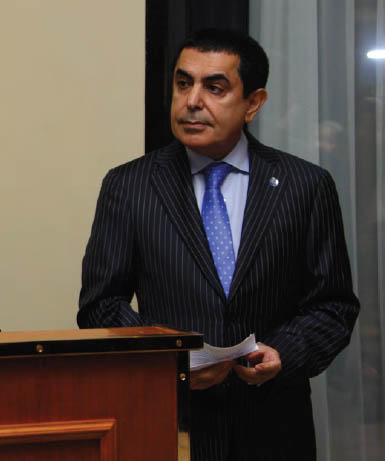
High Representative of the UN Alliance of Civilizations
Speaking at the High Level Meeting on "Happiness and Well-Being: Defining a New Economic Paradigm," convened during the sixty-sixth session of the General Assembly, the Secretary General Ban Ki-moon stated that the world "needs a new economic paradigm that recognizes the parity between the three pillars of sustainable development. Social, economic and environmental well-being are indivisible. Together they define gross global happiness." The meeting was convened at an initiative of Bhutan, a country which recognized the supremacy of national happiness over national income since the early 1970s and famously adopted the goal of Gross National Happiness over Gross National Product.
Marking the first ever International Day of Happiness, Secretary-General Ban Kimoon called on the international community to commit to an inclusive and sustainable human development that will improve the well-being of those who lack the basic services needed to pursue happiness.
"People around the world aspire to lead happy and fulfilling lives free from fear and want, and in harmony with nature," Mr. Ban said in his message for the Day.
"Yet, basic material well-being is still elusive for far too many living in extreme poverty. For many more, recurring socioeconomic crises, violence and crime, environmental degradation and increasing threats of climate change are an everpresent threat."
"When we contribute to the common good, we ourselves are enriched. Compassion promotes happiness and will help build the future we want."
Happiness rather than material wealth as a goal of social justice is a constructive evolution in civilization, befitting the emergence of a more compassionate consciousness among all peoples and religions that human dignity is to be validated by all of us.
In its own small way, the CRT has always sought to contribute to this vision of a culture that puts materialism in its proper place - vital yet not by any means the summum bonum of human striving.
To reflect again for a moment on the New Testament teachings of Jesus Christ, while we do not live by "bread alone', it is meet that we pray each day for our "daily bread."
Happiness is therefore a blend of the material and the spiritual, the real and the aspirational, worldly power and the more transcendental vision of justice.
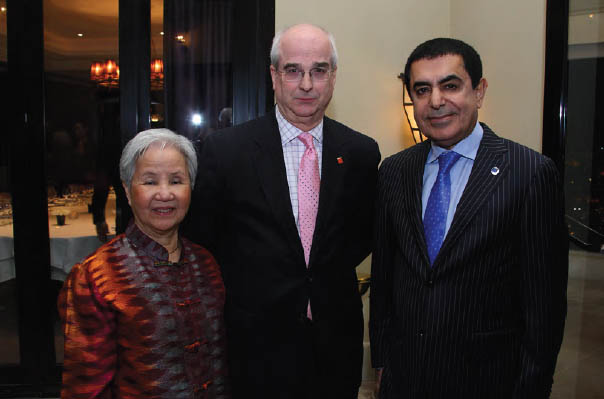
Aristotle advised that happiness is not possible without the possession of virtue. Happiness cannot flow from selfishness alone. Happiness is not indulgence; nor is it satiation of the senses or giving in to our fears. Happiness is finding connection where the self lives within a calling of higher purpose; happiness is finding our special place in our time for making our lives more worthwhile in the mind of eternity.
For business, corporate social responsibility, or business ethics, mediates between the material and the aspirational in the space we call happiness. CSR seeks to bridge the gap between what is and what might be better. Good stewardship of economic power and resources leads to happiness for the steward and his or her beneficiaries.
Stephen B. Young
Global Executive Director Caux Round Table,
CIFA Member of the Executive Committee
H.E. Nassir Abdulaziz Al-Nasser:
"Introducing the draft resolution submitted by
the President of the General Assembly on the
International Day of Happiness"
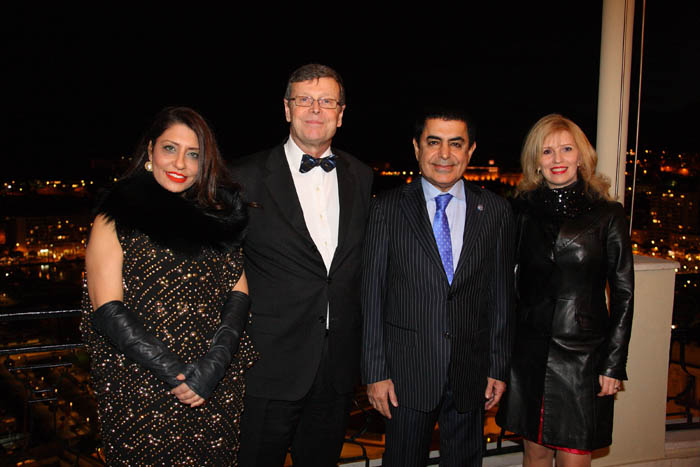
Jean-Pierre Diserens, CIFA Secretary General,
H.E. Nassir Abdulaziz Al-Nasser, High Representative of the UN Alliance of Civilizations,
Janka Palkova, CIFA Member of the Executive Committee
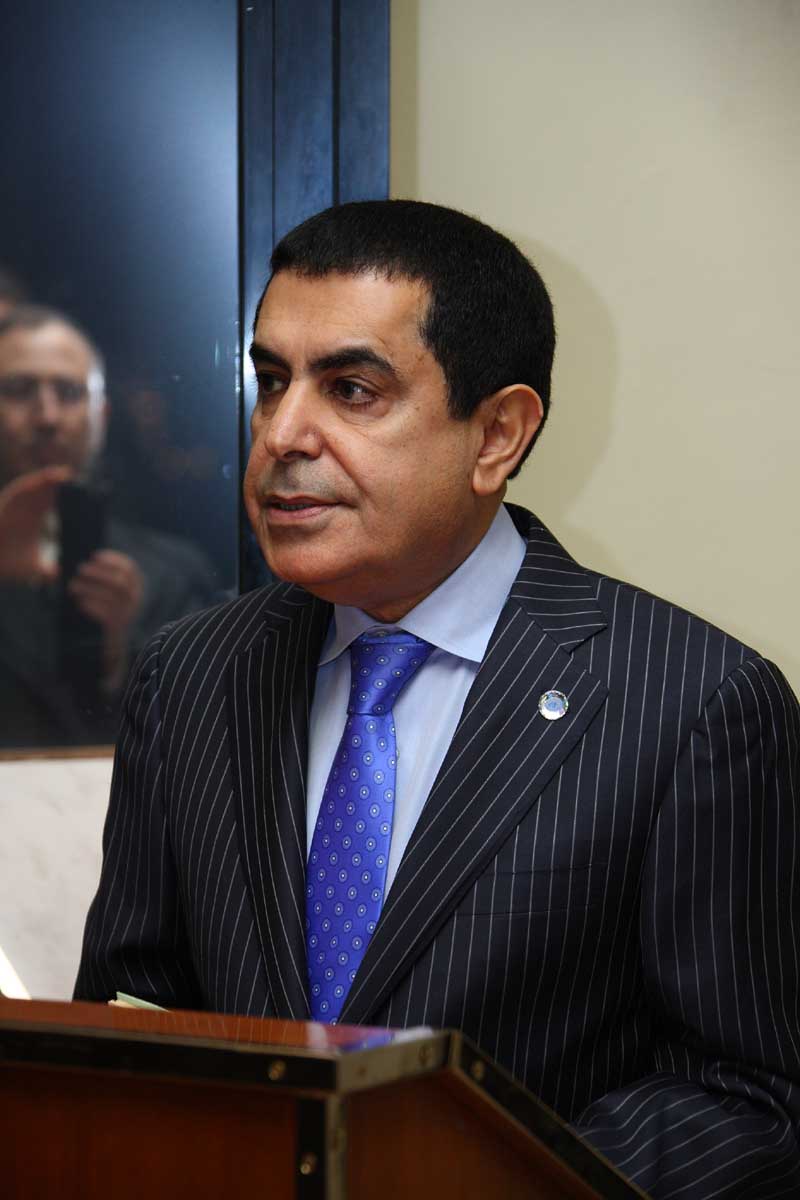
High Representative of the UN Alliance of Civilizations
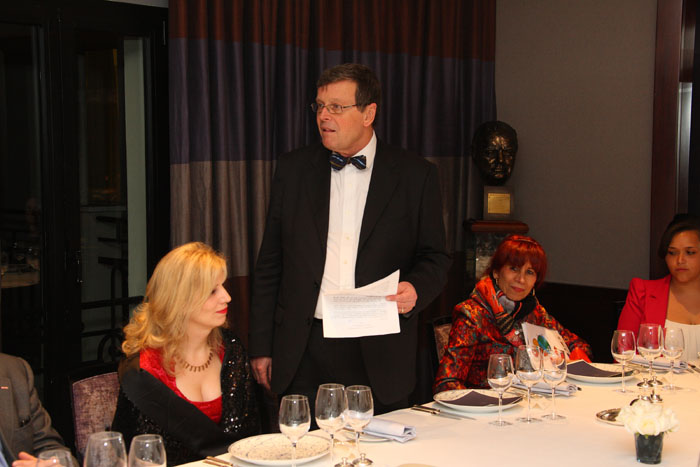
Jean-Pierre Diserens, CIFA Secretary General,
Hanifa Mezoui, Senior Advisor, United Nations Alliance of Civilizations,
Daniella Diserens
